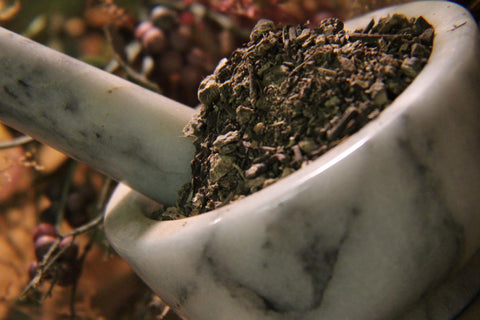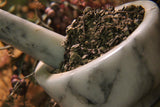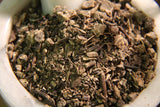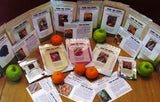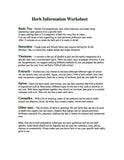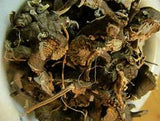Black Cohosh Root, Cut and Sifted - Wild Harvested in the foothills of the Appalachian Mountains
Black Cohosh Root,
Actaea Racemosa,
Black Cohosh Root, also known as snakeroot, is most often used to make Black Cohosh Tea. Herbal uses also include making Black Cohosh Extract, tinctures, as well as using as an admixture plant for herbal Salve. If tea, "isn't your cup of tea" Blue Cohosh Pills or capsules can be easily made.
Our Black Cohosh Root is Wild Harvested in the foothills of the Appalachian Mountains. No smog, no pollution and rich, nutrient filled soil provide the perfect environment for harvesting all natural, non GMO, wild herbs. Note: Black Cohosh is abundant in KY, TN and WV. If ethically harvested, leaving part of the Rhizome, the plant will reproduce.
The Black Cohosh Plant is a herbaceous, perennial native to eastern North America. The plant produces long, upright flowers on a stem in Early summer. Native Americans have a long history with using the plant as an herbal remedy. It's use has been documented for nearly 200 years. Black Cohosh is also know as Snakeroot, Black Snake root, Bugwort and Squawroot.
Occult, Witchcraft and Magic folklore uses - Associated with Love, courage and protection. Used in various herbal magic spells. Used in love mixtures, mojo bags, amulets, jars and charms. A commonly used organic herb for rituals, ceremonies and magick spells among alternative religious practices.
The information we share on this website is based on research from books, the internet, research papers, and personal experience with native plants. The information contained in this website should not be considered medical advice. These products are not intended to diagnose, treat, cure or prevent any illness or disease. For diagnosis or treatment consult your physician.
As with any food, allergic reactions can also occur with organic herbs. If you are pregnant or breast feeding do not use this herb. Speak with a medical professional if you have any concerns or adverse reactions.
As with any food, allergic reactions can also occur with organic herbs. If you are pregnant or breast feeding do not use this herb. Speak with a medical professional if you have any concerns or adverse reactions.

